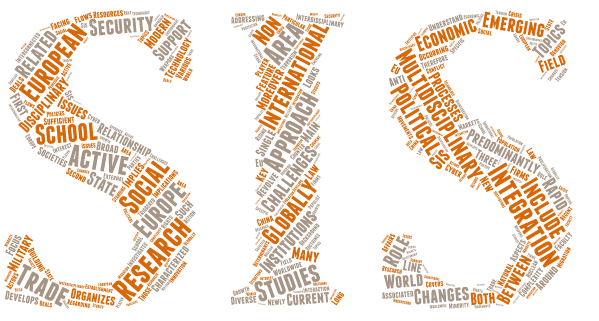SSI: un Centro multidisciplinare che studia le sfide legate ai processi della globalizzazione e dell’integrazione europea
La Scuola di Studi Internazionali promuove e organizza numerose attività di ricerca nell’ambito degli Studi Europei e Internazionali, in particolare in relazione alle sfide associate ai processi di globalizzazione e di integrazione europea. Tali attività si caratterizzano per un approccio multidisciplinare e interdisciplinare che consente, a differenza di un approccio mono-disciplinare, di comprendere i rapidi cambiamenti sociali, politici, economici e istituzionali che hanno luogo in Europa e nel resto del mondo.
Progetti di ricerca in corso
La Scuola ha sostenuto la realizzazione di una serie di progetti d ricerca finanziati sia internamente sia esternamente, valorizzando l’attività scientifica un gruppo di giovani ricercatori, qualificati e dinamici. I docenti lavorano su una serie di progetti di ricerca che coinvolgono colleghi di altri Dipartimenti dell'Università di Trento e studiosi e istituzioni esterne. Un elenco dei progetti di ricerca in corso è disponibile alla pagina dedicata.
Tematiche principali di ricerca

L'attività di ricerca della SSI ruota intorno a quattro aree tematiche.
Environment
Europe
Human Rights
International Security
Network di partner
Al fine di promuovere l’attività di ricerca e la diffusione dei risultati, la Scuola ha instaurato rapporti di collaborazione con una serie di centri di ricerca e think tanks nazionali e internazionali, oltre che con i Dipartimenti e le Facoltà dell’Università di Trento, e ha attivato speciali programmi di incontro e ospitalità di studiosi nazionali e internazionali.
Eventi
Durante l’anno accademico la Scuola organizza una serie di eventi tra cui un ciclo di seminari settimanali sui temi degli studi europei e internazionali (inclusa la sicurezza internazionale), e promuove conferenze e workshop di ricerca. Partecipa alla realizzazione di eventi di disseminazione e alla promozione della ricerca con altri enti locali, nazionali e internazionali
